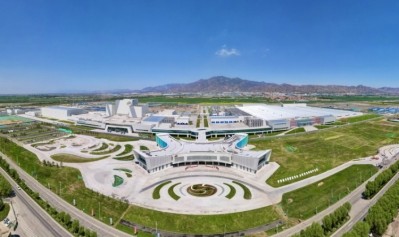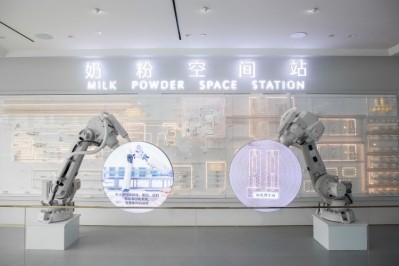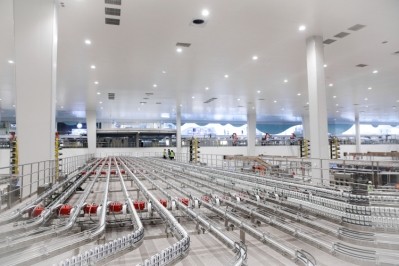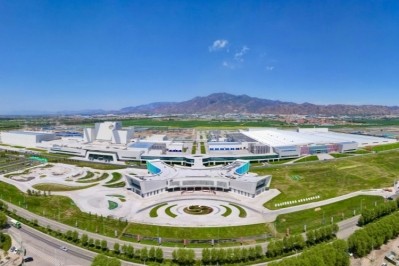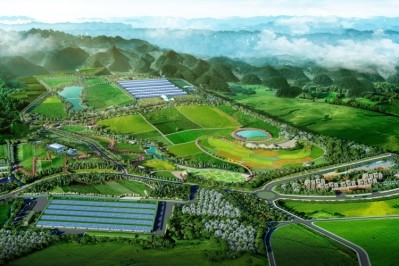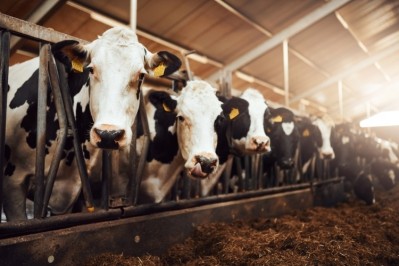Unmanned factory: Inside Yili’s dairy megapolis
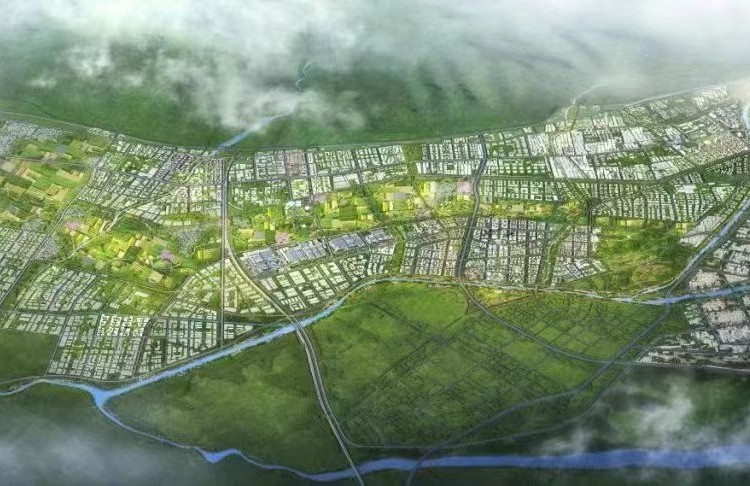
Dairy production hubs rarely if ever invoke thoughts of sci-fi like buildings and technology, but Chinese dairy products manufacturer Yili has more than succeeded in turning its conglomerate of production and farming facilities into an awe-inspiring destination.
Based in Hohhot, the Global Smart Manufacturing Industrial Park took three years to complete and forms part of a wider complex called the Yili Future Intelligence and Health Valley - nicknamed the Dairy Silicon Valley. This all feeds into the company's vision of a 'transparent factory', a destination that integrates industrial tourism into the dairy production base.
The complex benefits from a host of technological innovations - from smart manufacturing to various levels of automation that replace farm workers. And it’s not all business, either – schools, hospitals, cultural and tourist destinations and residential buildings have also opened on site.
The Valley will provide a major boost to Yili’s production and operation efficiency, and is expected to bring about a production value of RMB 200bn. In comparison, Yili's annual turnover for 2021 alone was around RMB 110,600bn.
From an intelligent pasture to a 5D cinema
To map out detailed plans for the project, engineering firm AECOM and international management consultancy Roland Berger were engaged; they explored various ideas and case studies on park development nationwide and globally to come up with the final plans for this multi-purpose destination. That process took more than a year to be finalized, and since the planning phase, more than three years had passed until the ambitious complex was put into operation.
Yili itself has four facilities - liquid milk and powder production bases, the Chilechuan Ecological Intelligent Pasture, and the Yili Intelligent Manufacturing Experience Center.
The largest of the four is the ‘intelligent pasture’ – a 750-hectare land for a herd of 12,000 cows. Deployed are a number of technologies such as genetic testing and embryo transplantation, while real-time monitoring and management is optimized through big-data technology.
Feeding, milking and manure cleaning are all automated processes, and the barn environment is carefully controlled remotely. “The pasture adopts a fully enclosed intelligent integrated aerobic fermentation system, which fully achieves ecological circular farming,” a spokesperson told DairyReporter. “The pasture also uses solar energy, air-source heat pumps and electric vehicles to reduce the consumption of fossil energy.”
The US$445m powder milk plant is said to be the first in China to use ‘a closed-type system for water recovery from evaporated milk’ and has a capacity to produce 60,000 tons of product annually.
The US$741m liquid milk production hub, meanwhile, can process 6,500 metric tons of fresh milk per day, according to Yili. It too is highly digitalized, including an automatic guided vehicle feeding system, a warehouse control system, an information management system dedicated to spare parts management, a centralized energy control hub, and a manufacturing execution system.
Finally, the futuristic-looking Intelligent Manufacturing Experience Center has been designed as a visitor center for corporate clients as well as a tourist destination for the wider public interested in learning the ins and outs of the dairy industry. Inside is a 5D cinema as well as China’s first dairy industry research and education base that offers various courses on nutrition to all age groups.
Transparent, efficient, traceable
Delving into the various types of technology the company has invested in, the Yili spokesperson said: “The manufacturing process is fully automatic, transparent, efficient and traceable. The integrated building management system enables the seamless movement throughout the estate [as well as] intelligent security, lighting control, smart risks analysis and voice alarm control.
“The factory management control system allows operators to remotely control the energy and air-purification system with mobile devices anytime and anywhere. The manufacturing execution system helps the factory to manage product life-cycle information - from the production plan, processing to storage.
“Facilities used for milk collection, pre-processing, filling, packaging and other functions can operate automatically. Other tasks, such as timely risk warnings and data collection and management, can also be completed automatically.”
Thirty-two production lines are planned within the base, mainly intended to serve products such as Ambrosial Greek-style yogurt, Satine and the ShuHua range.
Cutting emissions & attracting employment
Yili’s four facilities embed carbon reduction technologies at design level to ensure efficient energy control, manufacturing techniques, warehousing and logistics. The company claims that its liquid milk plant alone is projected to reduce its carbon footprint by 41,895 tons.
Alongside the dairy manufacturer’s production hubs, six national bodies are also based on site, including China’s National Dairy Technology Innovation Center, which Yili is set to collaborate with in the fields of nutrition and health, technology research, and food safety and quality.
“The Yili Future Intelligence and Health Valley continues to attract upstream, downstream and supporting projects to form an industrial cluster that will in turn boost the city’s socioeconomic development,” the company said in a statement. “To date, nearly 30 companies serving different roles across the dairy industrial chain - covering plantation, herding, packaging, logistics, marketing, new energy and urban construction – have found their home in the Valley, while more than 260 additional companies have also agreed to cooperate.
“Upon completion of the industrial operations and urban functions, it is expected to achieve significant ecological, social and economic benefits by 2035, generating direct/indirect employment for more than 350,000 people,” the spokesperson concluded.
